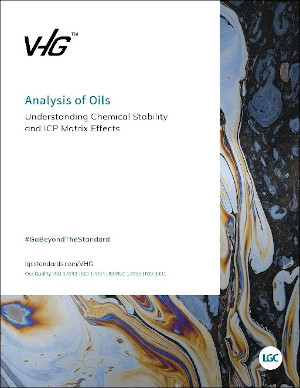Analysis of Oils

Analysis of Oils – Part 1: Introduction and the Importance of Boron
Wondering why boron can be such a difficult element to analyse by ICP? The chemistry behind metallo-organic compounds is complicated, with multiple factors influencing stability, but the signal “drop out” experienced by many ICP technicians can cause serious frustration. VHG endeavoured to better understand this issue and develop a solution, in an attempt to improve testing outcomes and help streamline lab processes.
In this series of posts we will take an in-depth look at the comprehensive study the VHG R&D team carried out to evaluate the underlying cause(s) of why some standards would start to fail over time, starting with a background on Boron and its importance in petrochemical analysis.
Why Boron?
Borates are widely used in a variety of petrochemical applications, such as lubricants, hydraulic fluids, fuel additives, and so on, and provide a wealth of benefits (for a more technical review of some of boron’s effects on oils, take a look at this 2015 study). Some of the key features boron provides include:
• Improved lubrication
• Corrosion inhibition – including at high temperatures
• Buffering action
• Freezing point reduction
• Boiling point elevation
• Stabilisation of thermal oxidation
• Prevention of sludge formation
• Reduction in moisture sensitivity
• Reduction of friction
As a result, testing for boron levels in oil samples is a crucial component to ensuring the intended properties of industrial and automotive fluids remain intact. Additives can be destroyed due to water-induced chemical reactions. Oil additives can also be absorbed by present water, and when the water is removed the additives go with it. Once an additive is lost or destroyed, the oil loses the characteristics that additive brings to the oil, altering its lubricating ability.
Next week we’ll start our deep dive into ICP testing and the VHG study of boron, beginning with an overview of calibration in petrochemical analysis.
Click here to download the full Analysis of Oils: Understanding Chemical Stability & ICP Matrix Effects technical paper.
